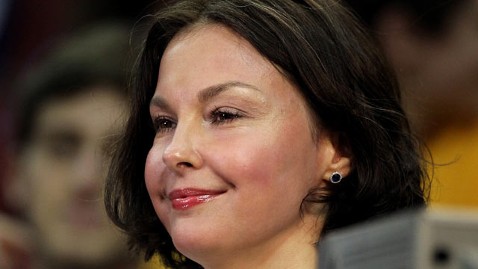Ashley Judd Hits Back at Media for Plastic Surgery Speculation, Calling Her 'Puffy'

Ashley Judd slammed the media in an essay for the Daily Beast for raking her appearance on a Canadian talk show over the coals. News outlets accused Judd of undergoing plastic surgery, lambasted her "puffy" face and used words like "cow" and "pig" to describe her.
While the "Missing" actress wrote that she had learned to ignore the media's coverage of her, the recent speculation about plastic surgery seemed "different" and triggered her need to respond.
"The conversation was pointedly nasty, gendered and misogynistic and embodies what all girls and women in our culture, to a greater or lesser degree, endure every day, in ways both outrageous and subtle," Judd, 43, wrote.
"The assault on our body image, the hypersexualization of girls and women and subsequent degradation of our sexuality as we walk through the decades, and the general incessant objectification is what this conversation allegedly about my face is really about."
Judd said women went as far as to tell her to "watch out" because her husband is "looking for a second wife."
The puffiness, Judd's rep said, stemmed from an ongoing and serious sinus infection and flu. Judd had been taking a heavy dose of medication, including steroids, which can cause patients to appear bloated or "puffy."
Judd implored men and women to stop perpetuating the dangerous cycle of bullying, calling her fellow females to fight to end the polarizing and negative chatter regarding women's looks.
"That the conversation about my face was initially promulgated largely by women is a sad and disturbing fact," Judd wrote.
"That women are joining in the ongoing disassembling of my appearance is salient. Patriarchy is not men. Patriarchy is a system in which both women and men participate. … This abnormal obsession with women's faces and bodies has become so normal that we (I include myself at times - I absolutely fall for it still) have internalized patriarchy almost seamlessly. We are unable at times to identify ourselves as our own denigrating abusers, or as abusing other girls and women."
And Judd is certainly on to something. Girls and women tend to be different in their bullying styles than their male counterparts, said Dr. Robert Sege, a professor of pediatrics at Boston University. While boys tend to get physical, girls use indirect bullying to taunt their victims.
"Elementary school and early adolescent behavior can become quite vicious for girls, and unfortunately, that doesn't always go away when adulthood hits," said Sege.
Oddly, there is a role reversal in the way the public bullies celebrities. Usually, socially powerful girls and boys prey on the less powerful, but there's a seemingly accepted mindset that rich and famous celebrities are acceptable targets, especially online.
"This celebrity bullying is a more nuanced thing, rather than the run-of-the-mill type of bullying we usually see," said Sege. "While there has always been gossip, the Internet has made it possible for larger groups to weigh in and bully, and the anonymity allows for commenters to be so much more abusive. Hiding behind the Internet has allowed people to express things they likely never would if they were face-to-face."
Judd said she could only hope that her piece triggers a conversation regarding such speech and the bullying mindset.
"The insanity has to stop, because as focused on me as it appears to have been, it is about all girls and women.
"It affects each and every one of us, in multiple and nefarious ways: our self-image, how we show up in our relationships and at work, our sense of our worth, value, and potential as human beings," she continued. "Join in - and help change - the conversation."